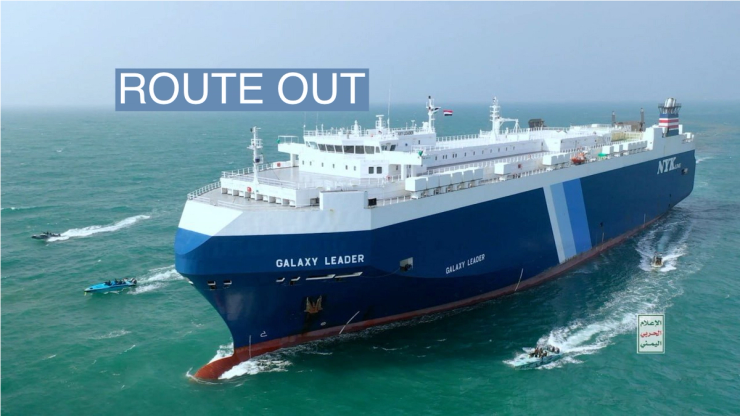The News
Oil giant BP has announced it will halt its shipments through the Red Sea as Iran-backed Houthi rebels have increased attacks on vessels passing through the crucial shipping route, targeting those that they believe are Israel-bound. Other shipping companies have also suspended journeys through the Red Sea, including Evergreen Line, Hapag-Lloyd and Maersk.
The U.S. announced a new Red Sea security initiative Monday, partnering with countries including the UK, Bahrain, France, Norway, and Spain. U.S. Secretary of Defense Lloyd J. Austin said that the escalation in Houthi attacks “threatens the free flow of commerce, endangers innocent mariners, and violates international law.”
SIGNALS
U.S. considers striking Houthi targets
U.S. officials believe that the Houthi attacks represent an undeclared war by Tehran and are weighing a direct strike on the rebels against the risk of fueling a broader war with Iran, Semafor’s Jay Solomon reported. Biden administration officials are concerned that the rebels are working to destabilize global maritime trade in an attempt to undercut Israel and also raise the costs to the U.S. and allies for supporting Israel’s military campaign. The “fallout from the war in Gaza is allowing Iran to showcase the full extent of its region-wide capabilities,” Solomon wrote. The result is a major risk to international shipping: “Many former defense officials believe the U.S. has no choice but to strike the Houthis in order to keep global commerce flowing,” Solomon added.
Risks to global economy may force U.S. intervention
A war which spills over into Yemen could have implications for global supply chains and the world economy at large. With major shipping companies avoiding the Red Sea and the Suez Canal — the shortest shipping route between Asia and Europe — supply chains risk becoming snarled, an analyst said in The Economist. Few of the ships being targeted are Israeli, despite the Houthis’ stated goals of striking Israeli vessels until supplies are sent to the Gaza Strip. The growing risk to global commerce increases the chances of a U.S.-led intervention: “If Iran and its Houthi proxies continue attacks that keep one of the world’s major trade routes closed, escalation may be inevitable,” The Economist noted.
Consumers will bear higher costs of new shipping routes
Without the Suez Canal, ships will need to redirect around the Cape of Good Hope, a circuitous route which will increase shipping times by up to four weeks. The costs to send goods on a new shipping route could jump by as much as $1 million per vessel, making purchases more expensive for consumers. “About 30% of Israeli imports come through the Red Sea on container vessels,” Yoni Essakov of the Israeli Chamber of Shipping told the Times of Israel. That means some goods may not reach Israel at all. “Products with a shelf life of two to three months will not be worthwhile importing from the Far East,” he said.



